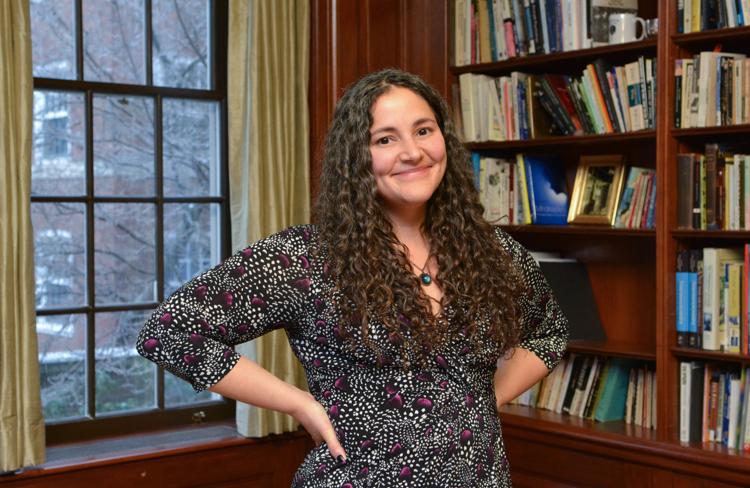Teacher Burnout: Recognizing and Reducing It
Signs of teacher burnout include emotional exhaustion, depersonalization, and a feeling of no longer being effective at your job. It’s important to listen to these feelings and make changes.

Teacher burnout continues to plague education. A recent survey from the RAND Corporation found that burnout is impacting both classroom teachers and school principals, all of whom report experiencing frequent job-related stress at about twice the rate of the general population.
The survey, conducted in January 2022, found that well-being was particularly poor among Hispanic/Latinx teachers, mid-career teachers, and female teachers and principals.
Staffing was a top source of stress for principals, and teachers and principals of color were more likely to experience racial discrimination. In addition, nearly two-thirds of the teachers surveyed reported taking on extra responsibilities during the pandemic.
Previous research has found similar results. According to a National Education Association survey, 55 percent of teachers are thinking about leaving their profession earlier than they planned, with nearly 600,000 teachers already having left the profession between 2020 and 2021.
As concerning as these numbers are, there are reasons for optimism. Pandemic disruptions to education have decreased somewhat in recent months and the new school year promises more of a return to normalcy. Educators can also learn to recognize and overcome teacher burnout, which is critical to successfully remaining in the classroom and working with students.
Symptoms of Teacher Burnout

Teacher burnout, and burnout in general, has three main symptoms, says Laurie Santos, a cognitive scientist and Yale University professor who teaches the popular Yale “happiness” course.
1. Emotional Exhaustion
Even after a really great night of sleep, you just feel unrested and exhausted the next morning, Santos says.
Tools and ideas to transform education. Sign up below.
2. Depersonalization
“It's like an extreme cynicism of other people. You just read other people's intentions as negative,” Santos says. “You get really frustrated even when people are asking you for things that are part of your job description.”
3. Lack of personal efficacy
“You feel like you're not doing your job at work,” Santos says. “You feel like you’re not making a difference, and you feel frustrated in terms of how effective you are.”
Santos advises teachers to look for these signs of burnout in themselves and to consider taking The Maslach Burnout Inventory, a free survey that assesses occupational burnout.
Recently, Santos noticed the signs of all three areas of burnout in herself and will take a leave absence to address it. “My first sign was starting to get frustrated with students for asking the normal kinds of things that students ask in my role as a head of college,” Santos says. “I was also really feeling ineffective in my role. The COVID-19 pandemic had changed my job completely.”
Santos also felt emotionally exhausted, and knowing the science behind burnout, she decided to take action.
Reducing Teacher Burnout

Learn to Say No
Kyle S. Whipple, a professor of Education for Equity and Justice at the University of Wisconsin-Eau Claire, warns the future teachers he works with to establish boundaries. “You're going into education, I promise you that every hour of every day, you could work if that was your goal,” Whipple tells the students during the first week of classes. “You will always have a basketball game you could attend. You will always have something you could be grading, and you will always have some lesson plan that could be better than it was.”
It’s important for young teachers to not let their passion for education overextend them. “A lot of us do receive a ton of energy and excitement and thrill from our jobs,” Whipple says. “I love coming to work. It's very fun for me, I love engaging with my students. And that's awesome. But you know what else I love? Being in a kayak.”
Whipple sets boundaries on digital communications. His phone turns off at 10 p.m. each night and does not go back on until the next morning, and he doesn’t accept requests that will take up too much time. “Part of my spiel with my students is if they don't learn right now as undergraduates to start saying, ‘Nope, I'm not going to do that thing because I want to do this other thing instead,’ they'll really struggle their first two or three years of teaching because, my gosh, do we overwork our early teachers.”
Listen to Symptoms of Burnout and Make Your Identity About More Than Your Profession
Many times when people feel symptoms of burnout they try to suppress their emotions. This is a mistake. “We ignore our negative emotions at our peril,” Santos says. “They're really signs that we need to make some changes in life. Think of putting your hand on a hot stove and experiencing pain. If you just ignore that pain and keep your hand there, you get an awful burn. And I think our negative emotions work the same way. If you're noticing some of the signs of burnout in yourself, you need to take some action. You need to make some changes at work.”
In addition to finding ways to rest at work, there is evidence that shifting your identity to something other than your profession can help reduce your risk of burnout, Santos says.
“Burnout really happens when people are putting their all and putting their entire identity into the job that they do,” Santos says. “I think that this is something you see a lot in teachers. And so finding other ways to enact your identity -- putting time and effort into being a good friend, into hobbies, and into being a good parent – these are ways that you can shift your identity away from work. And that means that when things are tough at work, there's something else that you can focus your energy on and get enjoyment out of.”
Erik Ofgang is a Tech & Learning contributor. A journalist, author and educator, his work has appeared in The New York Times, the Washington Post, the Smithsonian, The Atlantic, and Associated Press. He currently teaches at Western Connecticut State University’s MFA program. While a staff writer at Connecticut Magazine he won a Society of Professional Journalism Award for his education reporting. He is interested in how humans learn and how technology can make that more effective.

